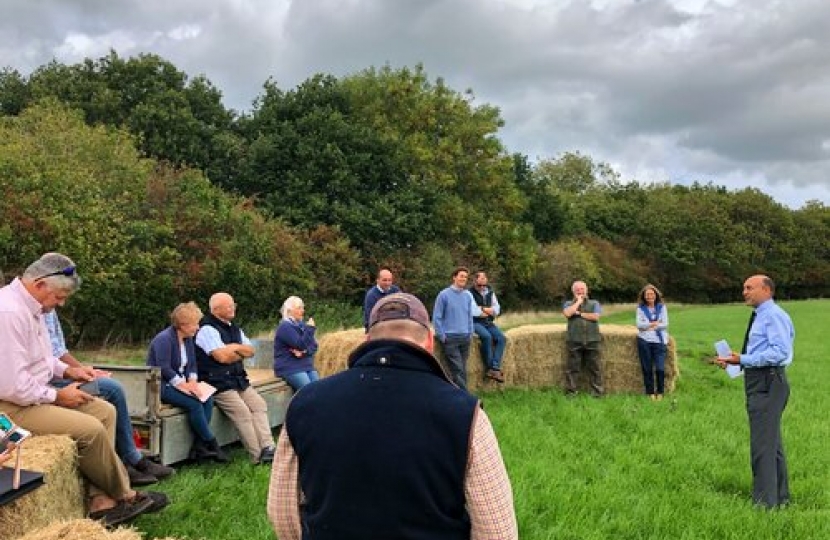
Arundel & South Downs MP, Andrew Griffith, met with local farmers in a roundtable meeting at Bushovel Farm to discuss the most pressing issues affecting agriculture in his constituency to take back to Westminster.
Throughout the meeting, a large range of issues were raised by local farmers, with a significant focus on the new Agricultural Bill and its approach to the Environmental Land Management scheme.
The scheme aims to replace the Basic Payment Scheme funding local farmers currently receive with payments for environmental services and benefits, with pricing centered around a natural capital valuation methodology. Local farmers raised concerns at the meeting around the scheme’s provisions for a wet year and the specific timings of the implementation of the scheme.
Other constructive discussion emerged around the ongoing milk contracts consultation between local farmers and Andrew, focusing on the provisions needed to prevent milk pricing from being set by an exclusive and discretionary methodology.
Andrew also updated local farmers on Sussex Police’s new team to combat rural crime and the significant progress made on Operation Downsway targeting anti-social driving in rural areas.
There was also a productive conversation between the local farmers and Andrew on the fluvial capacities of the rivers Arun and Adur, with Andrew going on to ask a question to the Secretary of State of Food and Rural Affairs in the House of Commons about what is being done to resolve poor water flow that can lead to flooding.
James Wright, tenant farmer at Bushovel farm, said: “It was fantastic to have such a wide range of farming backgrounds present at our roundtable meeting to discuss the issues local farmers are facing with Andrew. We spoke extensively about the ELMs roll-out, the funding available for rural broadband and the issues around rural crime. It’s great to know Andrew will raise our concerns at central government”.
Andrew said: “Our first ‘Farmers in the field’ meeting provided lots of useful feedback which I will take back to Defra. There are significant post-COVID opportunities to reshape our food supply chains and to guarantee food production properly rewards our farmers.”
